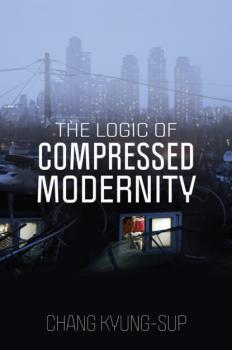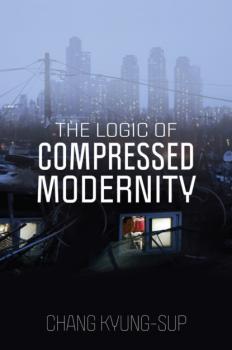ТОП просматриваемых книг сайта:
Социология
Различные книги в жанре Социология, доступные для чтения и скачиванияАннотация
The new edition of the definitive undergraduate guide to contemporary sociological theory, with updated reading selections throughout The fourth edition of Contemporary Sociological Theory offers a thorough introduction to current perspectives and approaches in sociology and social science. Covering a broad range of essential topics, this comprehensive volume provides students with the foundation necessary for understanding the theoretical underpinnings of present-day debates in the diverse field. In-depth yet accessible readings address micro-sociological analysis, symbolic interactionism, network theory, phenomenology, critical theory, structuralism, feminist theory, and more. This classic text is fully revised to incorporate the most representative and up-to-date material, including new readings addressing debates on gender, power, and inequality. New editorial introductions clarify and contextualize the selected readings, while up-to-date examples highlight connections to today’s theoretical discussions. This authoritative survey of contemporary sociological theory: Presents substantial primary source texts with detailed introductions, rather than brief excerpts and basic overviews Examines the sociological theories of Foucault, Giddens, Bourdieu, and Habermas Discusses debates over modernity and postmodernity, crisis and change, and race and difference Provides historical and intellectual perspective to each selected reading in the book Includes extensive references to further readings and resources Contemporary Sociological Theory , Fourth Edition provides the depth of coverage students require for undergraduate courses in social and sociological theory as well as courses in wider social science programs such as human geography, anthropology, criminology, and urban studies. In combination with its complement Classical Sociological Theory , Fourth Edition, Contemporary Sociological Theory remains the most complete overview of sociological theory available.
Аннотация
Most theories of modernity are based, explicitly or implicitly, on the development of Western societies since the late medieval period, but these theories are of limited value for understanding the development of societies in Asia and other parts of the world, where the process of modernization took place under different circumstances and often in a rapid and highly compressed fashion – not over centuries but in decades. Asian societies have been propelled into modernity too, but theirs is a compressed modernity, which displays very different traits. In this important book, Chang Kyung-Sup provides a systematic account of this compressed modernity and uses it to analyse the extreme social changes, complexities and imbalances found in South Korea and other East Asian societies. While these changes enabled South Korea to modernize very quickly and achieve high levels of economic growth, they also created a society that is haunted by various developmental and civilizational costs, such as endemic generational conflicts, overloaded family responsibilities and exceptionally high suicide rates. As with other societies that have experienced compressed modernity, the South Korean “miracle” is replete with extreme and contradictory social traits. This pioneering work of the nature and consequences of compressed modernity will be of great interest to students and scholars of sociology, politics and development studies, as well as anyone interested in South Korea, Asia and postcolonial societies.
Аннотация
Over its long history, the concept of ideology has acquired a vast and at times incommensurable roster of meanings: positive and negative, analytic and critical, philosophical, psychological and scientific. But how precisely should we understand and study ideology today? What is its connection to key issues in social life and social research, such as capitalism and class, democracy and partisanship, nationality, sex and gender, race and ethnicity? In this book, Marius S. Ostrowski navigates a path through the complex maze of ideology’s rival interpretations, tracing the shifting fortunes of ideology analysis from its classical origins to its recent renaissance. The result is a concise interdisciplinary overview of how ideologies combine and arrange ideas and how they manifest in our psychology and behaviour. Drawing on a wide array of examples from across the world, the book outlines the historical preconditions that allowed modern ideologies to emerge and illuminates how we experience ideology’s influence in our day-to-day lives. Ideology will be an indispensable resource for students and scholars across the social sciences and anyone seeking to understand the way ideology shapes how we understand the world around us.
Аннотация
Far from its origins in US legal studies in the 1980s, critical race theory has grown to become a leading approach to the analysis of racial inequality around the world. It has courted much controversy along the way, often misunderstood and poorly defined. So what precisely is critical race theory and what makes it different from other theories of race, racialization and racism? In this incisive book, Ali Meghji defines the contours of critical race theory through the notion of the 'racialized social system'. He thereby excavates a solid social theory that clears up many empirical and conceptual questions that continue to surface, offering a flexible, practical model for studying structural racism. In making his case, Meghji pays attention to the multiple dimensions of the racialized social system, focusing on core phenomena such as interaction orders, material interests, ideologies, emotions, and organizations. In a context where any work mentioning 'race' gets defined as critical race theory, this book expounds an approach that promises to be more generative for the social scientific study of race.
Аннотация
THE COMMODIFICATION GAP ‘In an elegant and careful theoretical analysis, this book demonstrates how gentrification is always entwined with institutions and distinctive contextual processes. Matthias Bernt develops a new concept, the “commodification gap”, which is tested in three richly researched cases. With this, the concept of gentrification becomes a multiplicity and the possibility of conversations across different urban contexts is expanded. A richly rewarding read!’ —Jennifer Robinson, Professor of Human Geography, University College London, UK ‘Urban studies has reached a stalemate of universalism versus particularism. Matthias Bernt is breaking out of this deadlock by being very precise about what exactly is universal and what is not – and how one can conceptualize both. The Commodity Gap is a key contribution to not only gentrification studies, but also to comparative urbanism and urban studies at large.’ —Manuel B. Aalbers, Division of Geography & Tourism, KU Leuven, Belgium The Commodification Gap provides an insightful institutionalist perspective on the field of gentrification studies. The book explores the relationship between the operation of gentrification and the institutions underpinning – but also influencing and restricting – it in three neighborhoods in London, Berlin and St. Petersburg. Matthias Bernt demonstrates how different institutional arrangements have resulted in the facilitation, deceleration or alteration of gentrification across time and place. The book is based on empirical studies conducted in Great Britain, Germany and Russia and contains one of the first-ever English language discussions of gentrification in Germany and Russia. It begins with an examination of the limits of the widely established “rent-gap” theory and proposes the novel concept of the “commodification gap.” It then moves on to explore how different institutional contexts in the UK, Germany and Russia have framed the conditions for these gaps to enable gentrification. The Commodification Gap is an indispensable resource for researchers and academics studying human geography, housing studies, urban sociology and spatial planning.
Аннотация
"Elements of Political Science" by Stephen Butler Leacock. Published by Good Press. Good Press publishes a wide range of titles that encompasses every genre. From well-known classics & literary fiction and non-fiction to forgotten−or yet undiscovered gems−of world literature, we issue the books that need to be read. Each Good Press edition has been meticulously edited and formatted to boost readability for all e-readers and devices. Our goal is to produce eBooks that are user-friendly and accessible to everyone in a high-quality digital format.
Аннотация
¿Qué pasó? ¿Cómo llegamos hasta aquí? Varios autores escribieron para El Líbero ensayos que analizan desde la historia, las ciencias sociales, la política y el derecho los acontecimientos que a partir del 18/O (o acaso antes) trazaron un camino político electoral que hoy tiene al país en un proceso constituyente y a Gabriel Boric en La Moneda.










